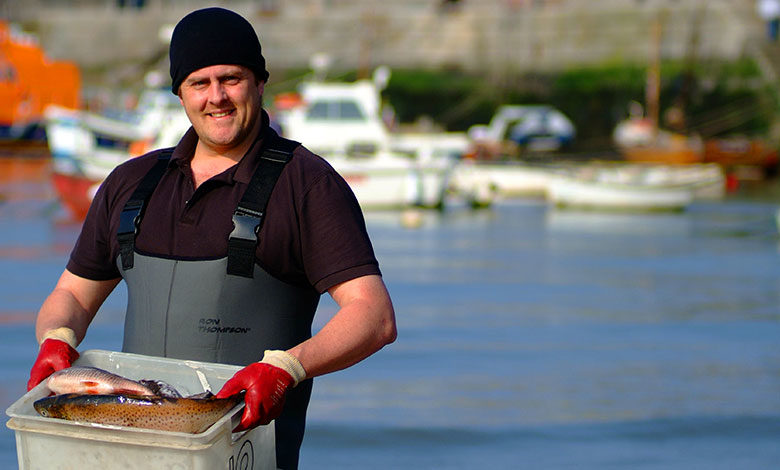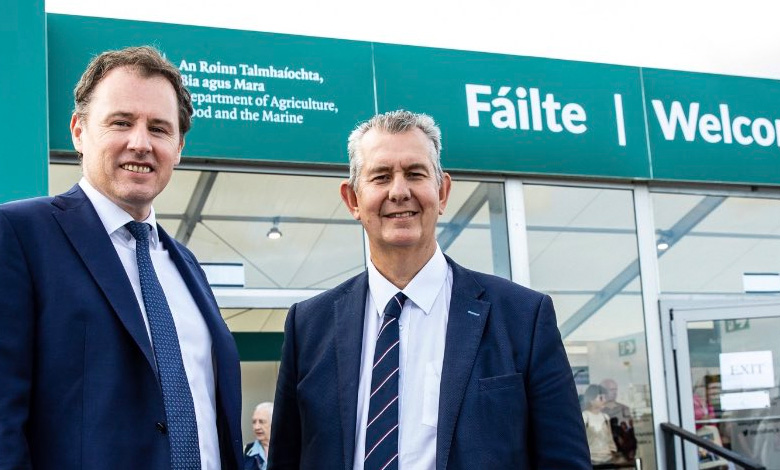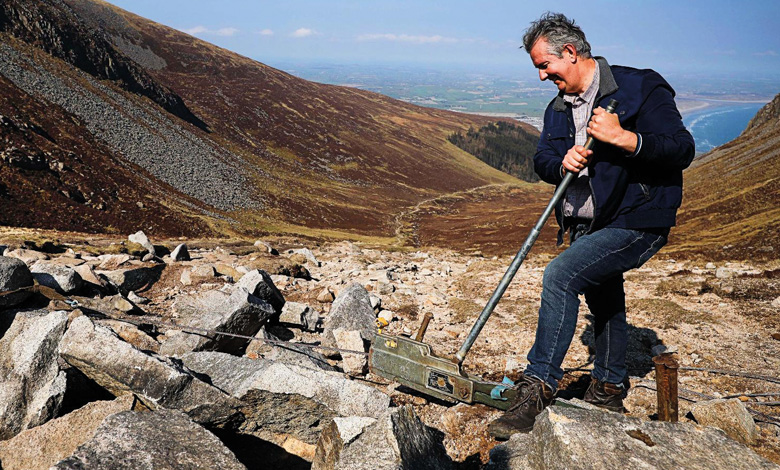Environment: Progress and priorities

Just days before leaving post, former Environment Minister, Edwin Poots MLA, outlined recent progress on environmental policy including the development of Northern Ireland’s first climate action plan, the delivery of a circular economy and the implications of The Retained EU Law (Revocation and Reform) Bill.
The draft environment strategy outlined six detailed strategic environment outcomes. What progress has been made on these outcomes to date and what are the most pressing challenges?
The Northern Ireland Environment Strategy will be one of the main strategies underpinning the Northern Ireland Executive’s green growth agenda and will provide the focus for protecting and enhancing our natural environment for the coming decades. It aims to be ambitious, inspiring, targeted, and most importantly, challenge us to put the environment at the heart of what we do across government.
I approved the finalised Environment Strategy on 23 March 2022, and it is intended that this will be designated as Northern Ireland’s first ‘environmental improvement plan’ (EIP) by July 2023 (the Environment Act 2021 requires Northern Ireland to adopt an EIP by this date). Improvements in our natural environment will be measured against the targets set out in the EIP, with regular reporting to the Office for Environmental Protection (OEP). My department has established a coordination team to report on progress against the EIP to the OEP. This process will commence once the EIP has been formally adopted. In the interim, work will continue on a wide range of actions to deliver the six strategic environmental outcomes.
The Climate Change (Northern Ireland) Act 2022 will have a huge impact on every section of our society and will have profound effects on every aspect of our lives; from where we build accommodation, the type of accommodation we build, the materials we use, the transport system we develop, how we work, the food we eat, and the fuel we use. Meeting the targets in the Act will help us to protect the environment and our health whilst also contributing to a green recovery. In addition to setting the 2050 net zero target for Northern Ireland, the Act requires the setting of carbon budgets to limit emissions across five-year periods and the production of climate action plans to set out how we will meet the emission limits set out in carbon budgets as well as the longer-term emission reduction targets. Work is already underway in terms of the development of o be published before the end of 2023 and this plan will contain policies and proposals from all departments.
In terms of adaptation, my department coordinates the development of the Northern Ireland Climate Change Adaptation Programme (NICCAP) on behalf of all Northern Ireland departments to fulfil the requirements of the UK Climate Change Act 2008. The current adaptation programme runs to September 2024 and is currently undergoing a mid-term progress review through which an assessment of the progress of delivery of actions to deliver climate change adaptation across departments and councils has been undertaken. That review should be published later in 2022.
To build upon the progress review, my department has also commissioned the UK Climate Change Committee (CCC), as the independent statutory advisor to government on matters relating to climate change, to undertake an independent assessment of the programme and to make recommendations for the next programme. I expect that independent assessment to be available in spring 2023. I believe that this independent assessment by the CCC will help put us in a better position in relation to climate adaptation and provide assurances on the approach taken in the subsequent adaptation programme. Additionally, the Climate Change Act (Northern Ireland) 2022 requires that the Climate Action Plan incorporates climate resilience. This should help to ensure that climate mitigation and climate adaptation are more closely aligned as many projects such as afforestation, peatland restoration, and even building design can deliver dual benefits.
The strategy also detailed the intention to publish a range of forthcoming strategies, not least a waste strategy and an air quality strategy. Can you outline how these are being progressed and whether their intended impact will be affected by delays in progress, in the absence of an Executive?
In June 2022, the Northern Ireland Waste Strategy closure report was published, setting out the formal closure of the Northern Ireland Waste Management Strategy 2013. I have committed to publishing a new Northern Ireland Waste Management Strategy by 2023, which will set the policy direction for the future management of waste in Northern Ireland for the next six years. A public consultation on the draft Strategy is planned for the second quarter of 2023.

My department continues to progress the development of Northern Ireland’s first Clean Air Strategy, publishing the synopsis of consultation responses to the Clean Air Strategy Discussion Document in June 2022 with comments received informing the basis of the actions proposed in the strategy. A cross-departmental stakeholder group, the Clean Air Strategy Inter Departmental Steering Group, has now been established and comprises officials from several key government departments. Other departments may need to be involved depending on the final agreed scope of the strategy. The group will meet regularly over the coming months to agree the Clean Air Strategy actions and draft the final strategy in advance of public consultation.
Will levels of fuel poverty and global concerns around security of energy supply in the time ahead have an impact on Northern Ireland’s ambitions for environmental improvements and the slowing of climate change?
My department has been leading on the development of the Green Growth Strategy on behalf on the Northern Ireland Executive. This multi-decade strategy sets our long-term vision for tackling the climate challenge by balancing climate action with the environment and the economy in a way that benefits all our people. It aims to ensure future government
policy-making has climate and environment action at its core.
In December 2021, the Department for the Economy published the Northern Ireland Energy Strategy, Path to Net Zero Energy in which it outlined its intention to replace fossil fuels with renewable energy. Three of the many policy objectives set out in this strategy include phasing out fossil fuel home heating oil, phasing out coal and certain solid fuels for home heating, and introducing support for low carbon heat technologies including heat pumps. The future energy solution will be a mix of fuels and technologies including hydrogen, eFuels, geothermal, onshore and offshore wind, solar, and biomethane produced as a result of our agricultural practices. All of these solutions will contribute to our security of supply and stop Northern Irish consumers being a price taker of fossil fuels.

In this context, any policy on phasing out coal and certain solid fuels would include consulting on plans for financial support for groups where these fuels are the primary source of heat and how any transition is affordable. No date has yet been set for this consultation.
My officials will continue to work with colleagues in the Department for the Economy in consideration of the restriction of coal and solid fuels to ensure that issues such as ambient air quality, rural equality, and climate change are fully considered in any proposals or options put forward for consultation.
In February 2022, the Assembly approved the OEP becoming the independent oversight body for Northern Ireland. Can you outline why this decision, rather than a Northern Ireland-specific environmental protection agency, was chosen?
The creation of the Office for Environmental Protection (OEP) was a core provision of the Environment Act 2021. The OEP’s broad role is to provide an environmental oversight role previously undertaken by the European Commission. It is important not to confuse the role of the OEP with that of the Northern Ireland Environment Agency (NIEA), which remains the primary environmental regulator in Northern Ireland. The OEP has no powers to act against individuals or private companies – instead, it focuses its attention on public authorities, including DAERA, to ensure they are complying with their statutory duties to implement environmental law. The Executive supported the extension of the OEP’s jurisdiction to include Northern Ireland and the commencement of the relevant provisions was approved by the Assembly on 22 February 2022, with the OEP commencing operations here on 28 February. There are clear benefits in having the implementation of Northern Ireland environmental law overseen by a larger organisation with access to much greater resources at significantly lower cost than a bespoke Northern Ireland body would have.
I am also considering the implications of the New Decade, New Approach proposal for the establishment of an independent Environmental Protection Agency to form part of the possible outline of a future Programme for Government. An independent Environmental Protection Agency, in other words a replacement for the NIEA, cannot be created overnight. Consideration needs to be given to appropriate options and these will require robust economic appraisal to determine the best option for Northern Ireland. It is no small task to scope all of the potential impacts, including significant legislative, financial, and human resource issues, which would be necessary before decisions can be made.
“There are clear benefits in having the implementation of Northern Ireland environmental law overseen by a larger organisation with access to much greater resources at significantly lower cost than a bespoke Northern Ireland body would have.”
My department currently operates an Environmental Farming Scheme (EFS), which made payments of £7 million in the most recent scheme year to farm businesses across Northern Ireland for the purposes of promoting environmentally sustainable farming practices. Since 2018, over 530km of new hedgerows have been planted and 60,000 hectares of priority habitats are under favourable management as a result of the scheme. The first pilot scheme was the Rural Community Pollinator Scheme which provided funding of £1.5 million to 178 rural groups in 2021/22. The £2.4 million School Pollinator Garden scheme, specifically for schools in urban and rural areas is to improve the health of our bees and pollinators and help protect our eco-systems, currently benefits over 300 schools.
The Retained EU Law (Revocation and Reform) Bill introduced at Westminster would remove the majority of EU-derived law, with some campaigners voicing concern that divergence from EU environmental law in Northern Ireland could be detrimental. What is your assessment of concerns that legislating domestically, even to align with current laws, could negatively impact wider policy and legislative work?
The key point is that we have already undertaken an extensive legislative programme to maintain our environmental protections and standards. There has been no reduction of the protections we had while members of the EU. The UK Government has introduced the Retained EU Law Bill to regularise the position of the EU laws we preserved, and we are assessing the impact of that Bill, not just on the environment but on all sectors. The Bill has only just been introduced into Parliament and we will be monitoring its passage closely.
Many of the laws which are DAERA’s responsibility, including most environmental laws, fall into the category of retained EU law and will be affected by the Bill.
I remain committed to ensuring that Northern Ireland has a clear statutory basis for protecting the environment and human health as has been the case throughout the changes resulting from the UK’s withdrawal from the EU.
You recently identified your priorities of post-Brexit farm support. How big of a role does agriculture have in achieving our environmental ambitions and how can farmers be supported to take on this role?
Last year, I published the Future Agricultural Policy Framework that identified outcomes and a vision for the agricultural industry in Northern Ireland. Following a major consultation at the end of last year, I announced 54 decisions on future agricultural support in the Assembly. Support measures will focus on a number of key themes: recognising the role of active farmers in adopting sustainable production practices, creating the conditions that will provide encouragement for young people coming into the industry, and driving up efficiency levels across the industry. These policy decisions provide a clear direction of travel for future agricultural policy in Northern Ireland. However, there is still significant work to progress which my officials will continue to take forward.
Future policy must allow farmers to have the best possible tools at their disposal. It is vital that we embrace a greater investment in science and technology, encourage innovation, promote the uptake of new knowledge that can deliver the sustained benefits to the industry, its customers and to the citizen. Schemes must help farmers and land managers develop, become more efficient and maximise the sustainable returns for the assets at their disposal. Environmental assets are central to this.
I launched a new Soil Nutrient Health Scheme (SNHS) in March 2022 that will be delivered over the next four years. The £45 million scheme will provide information on soil nutrient levels and estimates of carbon stocks in above ground biomass. This information will enable farmers to match nutrient applications to crop need, increasing efficiency, reducing excess run-off to watercourses, and improving economic and environmental sustainability.
To date, my department has offered £43 million in grant support under the Farm Business Investment Scheme (FBIS) – capital to help improve the sustainability of farm businesses in Northern Ireland. In September 2022, I also announced the re-opening of Tier 1 FBIS Capital which will build upon the success of the previous tranches of Tier 1, which, to date, has provided £26 million grant support to over 4,000 farmers and growers.
I am encouraged by the work being undertaken by the industry to deliver on a recommendation from the Kendal Report to create a new Sustainability Body for Northern Ireland. This body will work in partnership with my department to fulfil its requirements under the Northern Ireland Climate Change Act 2022 in respect of carbon audits of farms in Northern Ireland with the data being captured, analysed, and used to deliver performance improvement at all levels.
My vision is that the management of the environment becomes a profit centre rather than a cost and managing the environment is another enterprise on the farm. I am determined that Northern Ireland will play its part and that we will have a sustainable agri-food sector; producing high value food products and contributing to a clean, healthy environment that benefits people, nature, and the economy.
A recent report highlighted a 92 per cent circularity gap in Northern Ireland’s economy. Can you outline your vision for transition away from the current linear model?
My officials are working closely with the Department for the Economy on the draft Circular Economy Strategy which will set the vision and ambition for the circular economy in Northern Ireland. A public consultation on the draft Circular Economy Strategy will be launched in due course following a period of pre-consultation engagement with all departments, the Cross Departmental Steering Group and Circular Economy Coalition.
I am keen to see our resources moved as far up the waste hierarchy as possible, minimising waste and maintaining and maximising the value of products and materials for as long as possible. The benefits of circularity to the Northern Ireland economy are significant for all people living here, with the creation of green jobs as well as saving our businesses, customers, and suppliers’ money and building supply chain resilience.
Recycling is the preferred option where waste generation cannot be prevented, and re-use has been exhausted or an item has reached the end of its useful life. The adoption of the Circular Economy Package introduced challenging new recycling targets for Northern Ireland with a target of 65 per cent of municipal waste recycled by 2035 as well as a range of measures which are aimed at reducing consumption and reliance on virgin materials. I have always said that we need to go further than this and ensure that Northern Ireland is at the forefront of ambitious recycling rates and the recently enacted Climate Change Act (Northern Ireland) 2022 requires Northern Ireland to achieve a 70 per cent recycling target by 2030.
My department will be considering the infrastructure requirements that will be needed to deliver an impactful circular economy. We will also be supporting new initiatives that will reduce consumption, waste, and pollution and which will support clean and inclusive growth.





